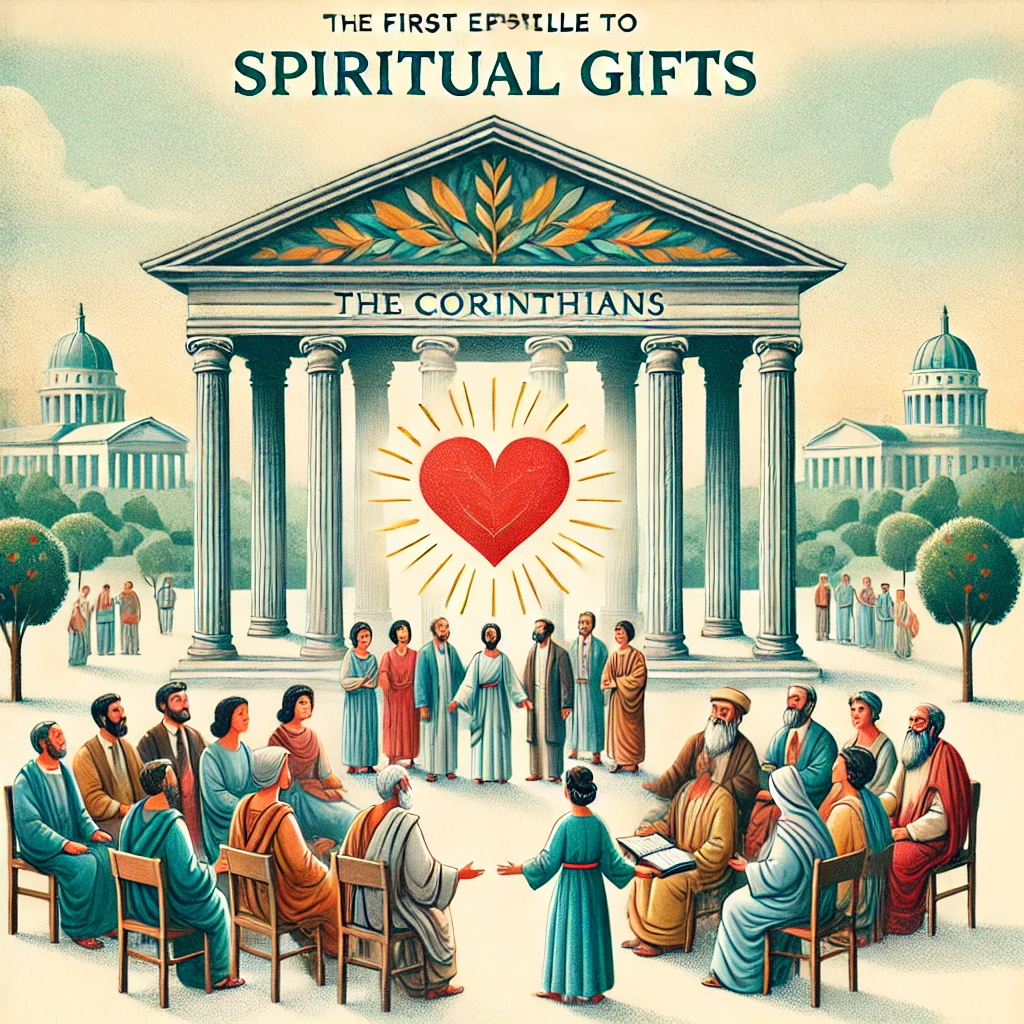The Book of 1 Corinthians is the seventh book of the New Testament and one of Paul’s most practical letters.
Written by Paul to the church in Corinth, this letter addresses numerous issues in a young, vibrant, but deeply troubled church.
The Corinthians were gifted but divided, spiritually eager but morally confused.
Paul corrects their behaviour, answers their questions, and reminds them that love—not knowledge or gifts—is the true mark of Christian maturity.
Addressing Division and the Centrality of the Cross (1 Corinthians 1–4)
Paul opens the letter by confronting divisions within the church and pointing them back to the cross of Christ as the foundation of unity.
Key Highlights:
- The church is divided over leaders like Paul, Apollos, and Peter
- Paul reminds them that Christ is not divided
- The message of the cross is foolishness to the world but power to those being saved
- God uses the weak to shame the strong
- Church leaders are servants, not celebrities
Lesson: True wisdom and unity come from the cross, not from human pride or personality.
Confronting Immorality and Church Discipline (1 Corinthians 5–6)
Paul addresses moral compromise within the church and calls for purity and accountability.
Key Highlights:
- A man is in an immoral relationship, and the church is proud rather than grieved
- Paul commands church discipline for unrepentant sin
- Believers are warned not to take each other to court before unbelievers
- Our bodies are temples of the Holy Spirit and should honour God
Lesson: Grace doesn’t excuse sin—holiness and accountability are essential in the church.
Marriage, Singleness, and Calling (1 Corinthians 7)
Paul responds to questions about relationships, singleness, and life situations.
Key Highlights:
- Encourages faithfulness in marriage and devotion in singleness
- Urges believers to live contentedly in their current calling
- Highlights the urgency of the gospel in shaping our priorities
Lesson: Whether married or single, we are to live with undivided devotion to the Lord.
Christian Freedom and Responsibility (1 Corinthians 8–10)
Paul teaches about how to use Christian freedom in love, especially concerning food sacrificed to idols.
Key Highlights:
- Knowledge puffs up, but love builds up
- Eating idol food isn’t sinful in itself, but it can harm weaker believers
- Paul limits his own rights to avoid hindering the gospel
- Gives the example of Israel’s failure in the wilderness as a warning
Lesson: Christian freedom must be shaped by love—our choices should never lead others to stumble.
Order in Worship and Honouring One Another (1 Corinthians 11)
Paul addresses conduct in corporate worship, including head coverings and the Lord’s Supper.
Key Highlights:
- Encourages honour and order in public gatherings
- Rebukes the misuse of the Lord’s Supper and calls for self-examination
- Reminds them that worship should reflect Christ’s humility and love
Lesson: Worship should be marked by reverence, humility, and love for one another.
Spiritual Gifts and the Way of Love (1 Corinthians 12–14)
Paul teaches about the diversity and purpose of spiritual gifts within the body of Christ.
Key Highlights:
- The church is one body with many parts—each gift matters
- No gift is more important than another
- Love is greater than all spiritual gifts (1 Corinthians 13)
- Gifts like prophecy and tongues must be used in an orderly way
- God is not a God of confusion but of peace
Lesson: Spiritual gifts are valuable, but love is essential—without it, gifts are empty noise.
The Resurrection of Christ and Future Hope (1 Corinthians 15)
Paul explains the centrality of the resurrection to the Christian faith and gives hope for eternal life.
Key Highlights:
- Christ died, was buried, and rose again—this is the gospel
- The resurrection is essential to our faith and hope
- In Christ, all will be made alive
- Our resurrection bodies will be transformed and glorious
- Death is swallowed up in victory
Lesson: The resurrection guarantees our future hope and empowers our present faithfulness.
Final Instructions and Personal Greetings (1 Corinthians 16)
Paul closes the letter with practical matters, encouragements, and greetings.
Key Highlights:
- Encourages generous giving for other believers
- Plans to visit and sends greetings from fellow workers
- Urges the church to stand firm in faith and do everything in love
Lesson: The Christian life is lived in community, generosity, and consistent love.
Themes of 1 Corinthians
- Unity in the Body – The church must be united in Christ, not divided by personalities
- Holiness and Discipline – Grace leads to transformation, not tolerance of sin
- Love Above All – Love is the true measure of spiritual maturity
- Order in Worship – Worship should be edifying, respectful, and centred on Christ
- Hope of Resurrection – Christ’s resurrection secures ours and shapes how we live now
Final Thoughts
The Book of 1 Corinthians is a heartfelt and powerful call to live as God’s holy people in a messy world.
Paul challenges the Corinthian church—and us today—to be shaped by the cross, grounded in love, and committed to unity, holiness, and hope.
The letter reminds us that while the church is imperfect, Christ is faithful, and His grace is enough to transform us.





